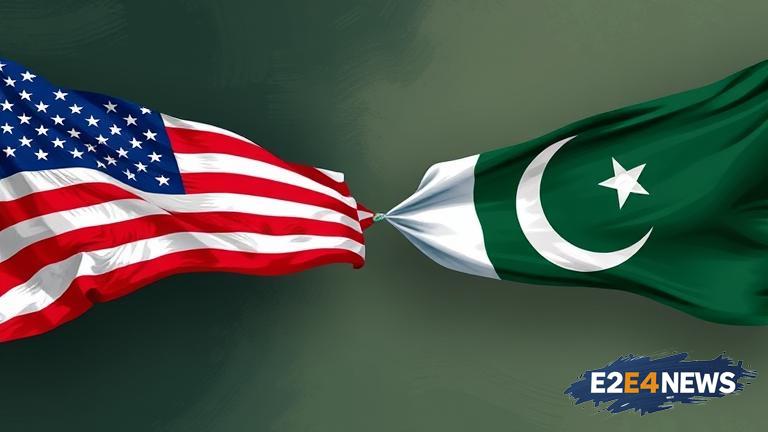The relationship between the United States and Pakistan is a complex and multifaceted one, with various factors at play that can impact the trajectory of their ties. According to John Spencer, a warfare expert, the US-Pakistan relationship is not as straightforward as it seems, and there are several reasons why US tech companies may not be investing in Pakistan soon. One of the primary concerns is the issue of terrorism, with Pakistan being accused of harboring terrorist groups that have been responsible for attacks in the region. This has led to a trust deficit between the two countries, making it challenging for them to cooperate on various fronts. Furthermore, the US has been critical of Pakistan’s human rights record, particularly in the context of the country’s treatment of minorities and dissenting voices. The US has also been concerned about Pakistan’s growing proximity to China, which has been investing heavily in the country’s infrastructure and economy. This has led to a sense of unease in Washington, with some policymakers viewing Pakistan as a key player in China’s Belt and Road Initiative. Despite these challenges, Pakistan remains a crucial partner for the US in the region, particularly in the context of counter-terrorism efforts. The US has been providing significant military aid to Pakistan, which has been used to combat terrorist groups operating in the country. However, the US has also been critical of Pakistan’s military establishment, which has been accused of having links with some of these terrorist groups. The complex nature of the US-Pakistan relationship is also reflected in the country’s political landscape, with various factions and interest groups vying for power. The US has been engaging with Pakistan’s civilian government, but the country’s military establishment remains a powerful force that cannot be ignored. In recent years, there have been efforts to improve ties between the two countries, with high-level visits and diplomatic engagements. However, these efforts have been hindered by the various challenges and complexities that exist in the relationship. The issue of Kashmir remains a major point of contention between Pakistan and its neighbor India, with the US seeking to play a mediating role in the conflict. The US has also been concerned about the growing nuclear arsenal in the region, with both Pakistan and India possessing nuclear weapons. In this context, the US-Pakistan relationship is not just about bilateral ties, but also has regional and global implications. The complex nature of the relationship requires a nuanced and multifaceted approach, one that takes into account the various interests and concerns of both countries. As the US seeks to navigate this complex landscape, it will need to balance its own interests with the need to engage with Pakistan in a constructive and meaningful way.
